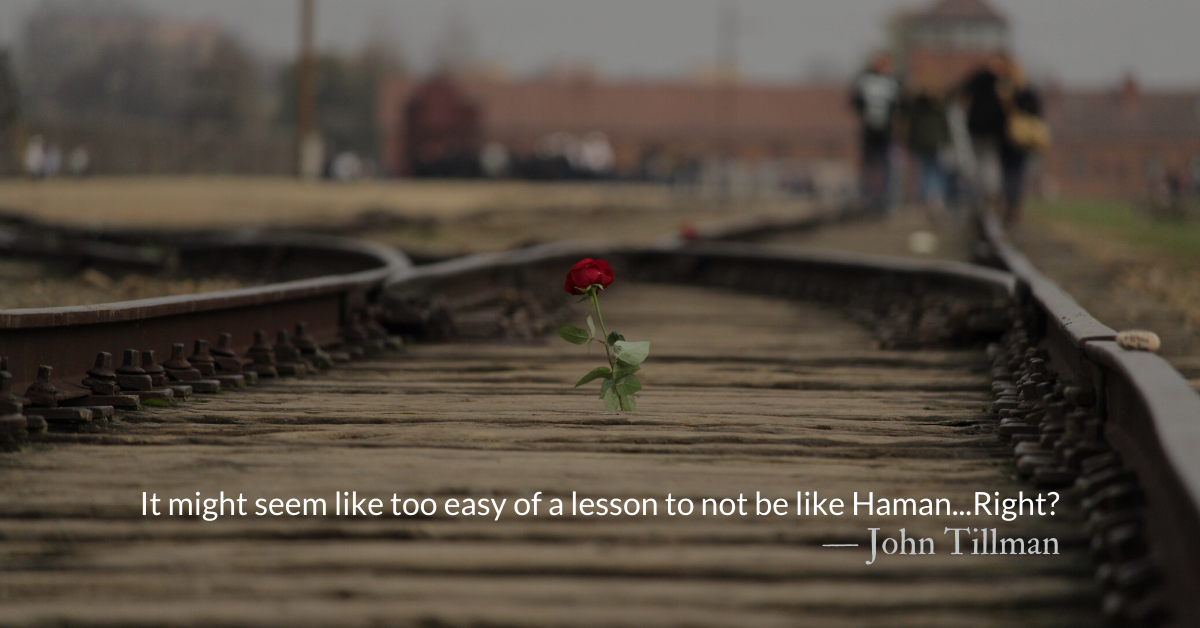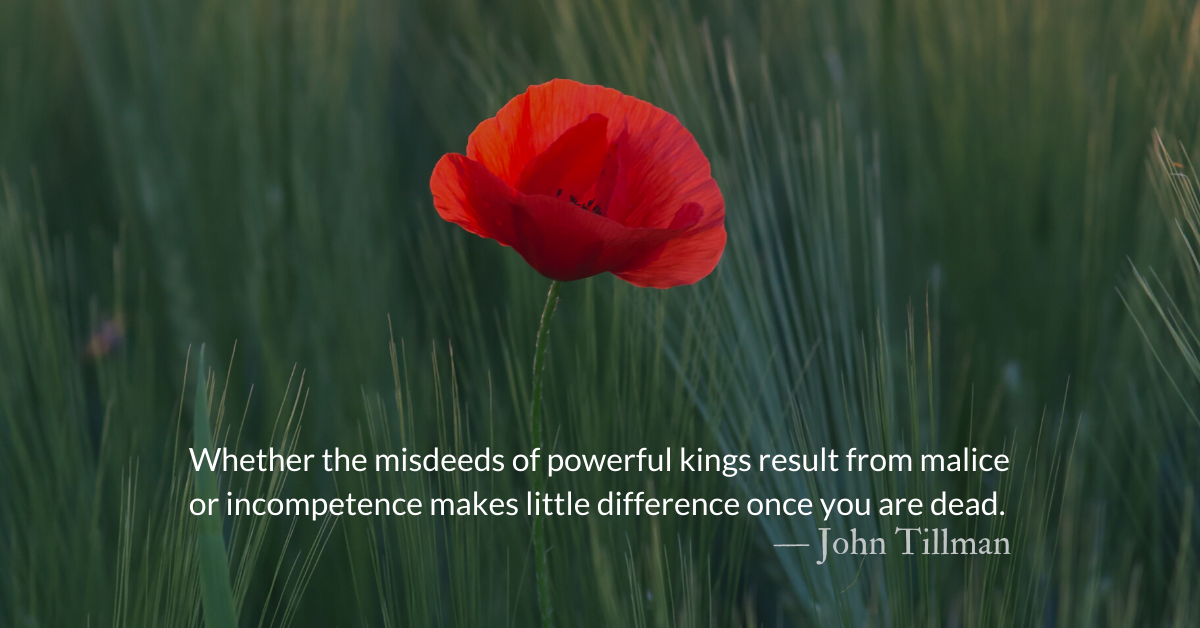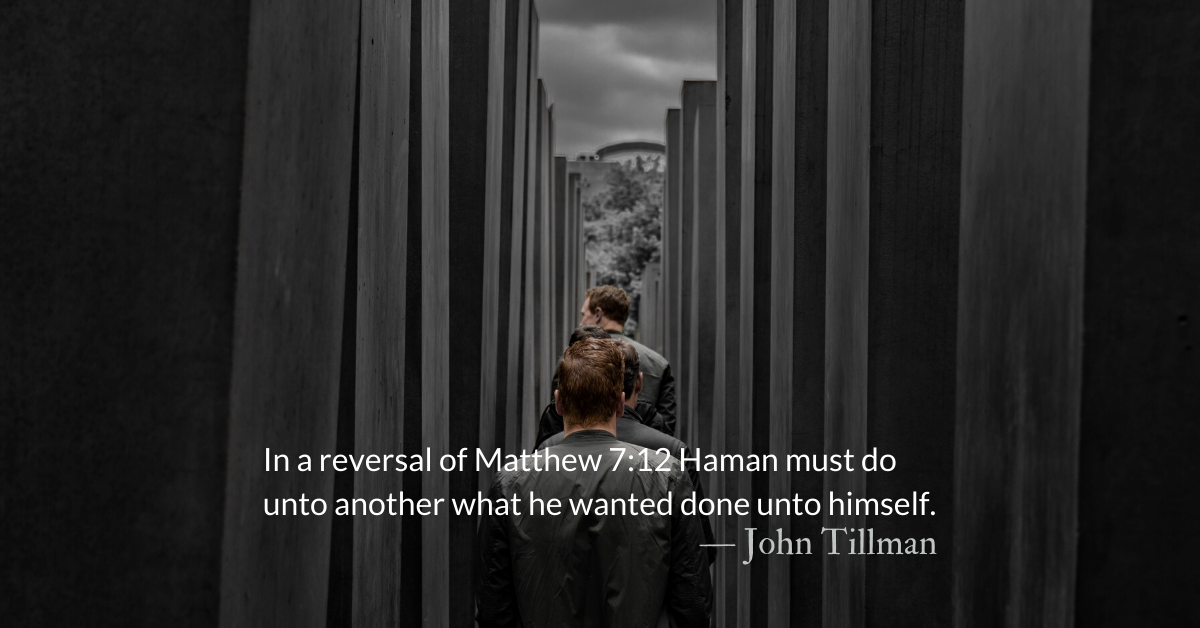Selected by reader, Sam, Texas
This devotional was a solid reminder that if I give in to tendencies to take things personally, equate individuals with groups, and fixate on only the negative…I can quickly become the villain.
Originally published, January 28, 2020, based on readings from Esther 5 & Acts 28.
Scripture Focus: Esther 5.13-14
But all this gives me no satisfaction as long as I see that Jew Mordecai sitting at the king’s gate.”
His wife Zeresh and all his friends said to him, “Have a pole set up, reaching to a height of fifty cubits, and ask the king in the morning to have Mordecai impaled on it. Then go with the king to the banquet and enjoy yourself.” This suggestion delighted Haman, and he had the pole set up.
Reflection: Avoiding Haman’s Petard—Readers’ Choice
By John Tillman
The set up leading to Haman’s demise builds an extremely dramatically satisfying tension.
Haman is metaphorically “hoisted by his own petard,” as Hamlet would say. Hamlet’s phrase referred not to being raised up on a pole but to being blown up by one’s own explosive device. (A “petard” was a small explosive used to breach doors or castle walls.)
What led to Haman blowing up his life? If we find ourselves thinking in these Haman-like ways, we are lighting a fuse towards Haman-like actions that will blow up in our faces.
Haman took things personally. Haman’s path to hatred was hatched based on an action which he interpreted as disrespect. (Esther 3.3-5) Mordecai would not kneel. In doing this, Mordecai was disobeying the king’s order, and seems to have defended himself to the other nobles by appealing to his Jewish heritage. Mordecai’s act of civil disobedience probably had nothing to do with Haman personally. But Haman made it about him and sought to punish his non-compliance.
When we take other’s expressions of faith as personal attacks, we are thinking like Haman.
Haman equated the individual with the group. Rather than deal with Mordecai individually, Haman applied his hatred of Mordecai to all of the Jews. (Esther 3.6)
When we allow personal dislike or conflict to grow into generalizations and stereotypes about groups, we are thinking like Haman.
Haman demanded disproportionate “justice.” (Esther 5.13-14) Even if one agreed that Mordecai’s actions were disrespectful, Haman demanded disproportionate punishment for the offense. His vengeful desires are outsized in both scale (wanting to exterminate all Jews, not just Mordecai) and severity (wanting to impale Mordecai on a pole for a comparatively minor infraction.) This is similar to “cancel culture” today, in which online trolls seek to make someone who has offended them unemployable pariahs for life.
When we seek disproportionate revenge, we are thinking like Haman.
It might seem like too easy of a lesson to not be like Haman. After all, he was an explicitly racist, genocidal maniac. Right? Haman didn’t think so. Haman would have described himself as a patriot and a faithful government servant. After all, Haman just wanted Mordecai to follow the law.
“It’s fine to be Jewish. Just do it legally,” Haman might have said.
Haman says, “Be respectful.”
Haman says, “Be grateful.”
Haman says, “Bow.”
If we don’t want to act like Haman, we need to be careful not to be motivated like him, think like him, or speak like him.
Image: Esther Denouncing Haman, by Ernest Normand — public domain
Divine Hours Prayer: The Morning Psalm
Show me your marvelous loving-kindness, O Savior of those who take refuge at your right hand from those who rise up against them.
Keep me as the apple of your eye; hide me under the shadow of your wings, From the widid who assault me, from my deadly enemies who surround me. — Psalm 17.7-9
– Divine Hours prayers from The Divine Hours: Prayers for Summertime by Phyllis Tickle
Today’s Readings
Lamentations 2 (Listen – 4:55)
Psalm 33 (Listen – 2:08)
Read more about Supporting our Work
The Park Forum strives to provide short, smart, engaging, biblical content to people across the world for free with no ads. Gifts to The Park Forum support this mission.
Read more about A Prayer for the Hurting
Esther had her triumph from you; you procured the downfall of Haman. You brought us from darkness to eternal light…










